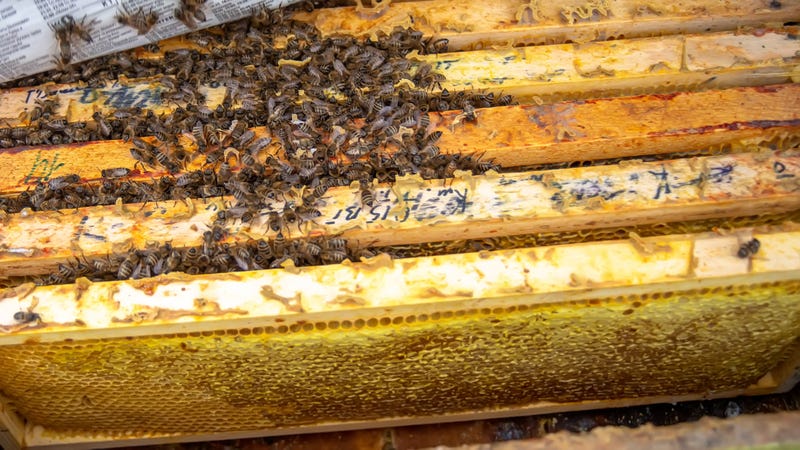
The unseasonably warm February weather could possibly bring honeybees out early this year.
While other pollinators haven't quite emerged from their dormant state yet, the recent record temps could mean we start seeing more bees.
University of Minnesota entomologist Elaine Evans says honey bees don't actually hibernate at all and it could be dangerous if they emerge too early.
"They actually stay kind of active through the year," Evans says. "They'll cluster together, use their muscles and shiver to stay warm. And when the weather is warm, they'll come and fly out and be active. So we know it is stressful for the honey bees to have so much warm weather."
It also could cause honey bees to be active before they have enough food to eat, but the weather has been so far from normal, it's difficult to know how they'll react.
"It's hard to know how they're going to be impacted by this period where it's warmer," Evans tells WCCO. "There's concern about if their metabolism might start running more, they might start running through those fat reserves."
She says since the bees will have trouble finding nectar this time of year and with relatively cold weather now coming in, their spring time population could be at risk.
Evans says if you happen to see an early bee take a picture and share it on the website Inaturalist. She says it can help state researchers learn more about the impact of warm winter weather on bees.
